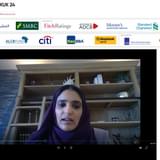The EIB is set to invest 60% of its MENA funding allocation in Egypt over the next year according to the Bank’s chief economist, Debora Revoltella, speaking to Daily News Egypt, citing significant new opportunities in the country.
The announcement appears to contradict the current investment sentiment regarding the country, which is struggling to shore up much needed funding. Just last month Egypt was in discussions with the IMF over a US$10bn loan which would assist the country in combatting dwindling foreign investment and FX reserves, which have been falling since the 2011 uprising. Reserves have almost halved since then and currently stand at about US$17.5bn.
Whilst the EIB seems willing to provide a significant amount of funding to the country, it is unlikely that other investors will be as keen to follow suit.
“If the EIB helps fund the government or other industries then it is unlikely that there will be any foreign investors,” said a senior investor based in Egypt.
The shortage in FX availability and convertibility in the country is the main reason behind a decline in foreign investment in Egypt.
Although the Egyptian pound currently trades at EGP8.87820 to the USD at the official exchange rate, it is trading at around EGP12.5 to the dollar on the black market.
“Investors are better off keeping their dollars, and they will want to see the FX rate stabilise before they part with their money.”
The investor added that unless the EIB offers financing packages to the country’s banking sector there will likely be no significant investor participation.
The FX issue could give rise to other problems. “Although political issues within the country have calmed, the government’s need to tackle the FX rate and inflation could lead to a rise in domestic disturbances.”
Such problems need to be addressed. Inflation in Egypt stood at 14% in June this year according to Trading Economics, up from 8.38% in July last year.
Despite the FX mismatch however, there are certain opportunities for investment within Egypt’s economy. Sectors such as energy, infrastructure, logistics and agriculture are likely to carry some appeal to foreign investors.
“Anything consumer-based could provide opportunities for investors, as with the pound’s devaluation imports are more expensive.”
Alongside the increased domestic consumption of local goods, export sectors could also provide investment opportunities, as they benefit from the devaluation of the pound.
The investor also noted that there were investment opportunities within the education and healthcare sectors as there had been a distinct lack of investment from the government in these areas.









